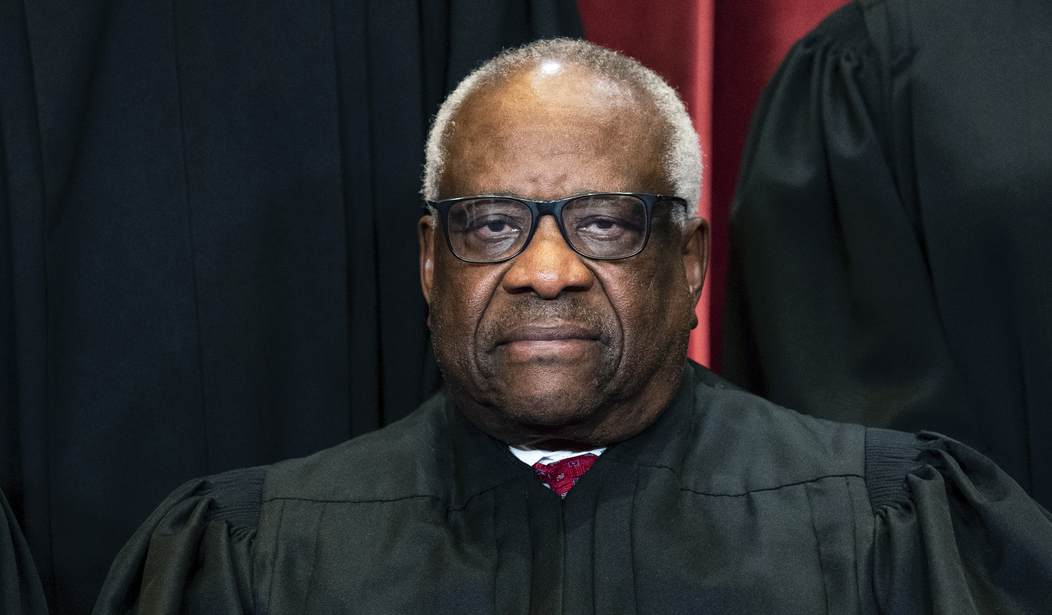It seems like only yesterday that SCOTUS’s preliminary Dobbs decision was leaked. The next thing we knew, the entire nation came together to wait with bated breath for U.S. Supreme Court opinion drops that would divide us. The 2021-22 session gave the court the opportunity to make some fairly significant decisions — and the Trump-McConnell new-and-improved SCOTUS did not disappoint.
West Virginia v. The Environmental Protection Agency reined in the imperious EPA, limiting the agency’s carbon emissions regulating power by requiring Congressional approval for blanket pronouncements. Kennedy v. Bremerton School District freed up “Praying Coach” Joseph Kennedy to thank the Man Upstairs when he’s on the field. New York State Rifle and Pistol Association v. Bruen forced the Empire State to respect the Second Amendment a wee bit more. And of course, the aforementioned Dobbs v. Jackson Women’s Health Organization returned abortion regulation decisions to the states, where they belong. Heady times for conservatives!
And now, the same Constitutionalist, right-leaning court is getting ready to release its decisions for the 2022–23 session. The latter weeks of May and the month of June will be punctuated with bursts of news and analysis as some significant decisions get handed down. Here’s a quick preview of a few of the cases to watch:
303 Creative LLC v. Elenis: This case could provide desperately needed relief to Christian and other religious small business owners and professional artists. Lorie Smith, the owner of the 303 Creative LLC, wants to design websites for her clients’ weddings, and her faith compels her to regard marriage as between a man and a woman. This pits her against Colorado’s Anti-Discrimination Act (CADA), which regards businesses as “public accommodations” and forces them to serve all comers. This is not a big deal — and it’s only right — for, say, a shop that sells the same jeans or burgers to every customer. But artists like Smith (or the better-known Jack Phillips, owner of Masterpiece Cakeshop) personally create their products on a customized, individual basis. This requires them to become intimately involved with the subject of each commission, to think and feel a certain way, and to create an end product that delivers a stipulated message — compelled speech, in other words. A ruling in 303 Creative’s favor would deprive rainbow fascists of one of their favorite ways to make punching bags of Christian small business owners.
Related: Supreme Court Agrees to Hear Case That Could Significantly Curtail the Power of the Regulatory State
Students for Fair Admissions v. University of North Carolina and Students for Fair Admissions v. President and Fellows of Harvard: This pair of cases could be the knight in shining armor who finally slays the affirmative action dragon. There is already speculation that several of the conservative justices are inclined to strike down affirmative action in college admissions as unconstitutional. Because as everyone knows, when you discriminate for someone, you must necessarily discriminate against someone else. It would be a great, great day for America if Students for Fair Admissions won their cases.
Biden v. Nebraska and Department of Education v. Brown: A win here would demolish Biden’s ludicrous position that he has the authority to simply disappear student loans. Court-watchers are concerned that the plaintiffs — six states in one case and two individuals who hold loans in the other — may be deemed not to have standing, which would jettison the whole complaint. One hopes SCOTUS wouldn’t have allowed the cases to progress to this point if they thought the people bringing them had not been harmed.
Related: Supreme Court Agrees to Hear Case That Could Significantly Curtail the Power of the Regulatory State
Gonzalez v. Google: 23-year-old American student Nohemi Gonzalez was killed in a string of coordinated Islamic terror attacks in Paris in 2015. Gonzalez’s family sued YouTube parent company Google, claiming that the streaming site’s algorithm aided and abetted the attack with its targeted promotion of ISIS recruiting videos. Weasely Google pointed to Section 230 of the Communications Decency Act of 1996, which grants internet platforms immunity from liability for things that third parties post. People on the Right have long cried foul because Big Tech loves to claim they’re not an actual publisher, just a neutral platform, then behave like a publisher by deciding to de-platform and demonetize conservative, libertarian, and even classical liberal speech. Big Tech banned a sitting president, among other prominent leaders on the Right, while hypocritically allowing leftists to keep coordinating threats, attacks, and abuse. A win for the plaintiff in this case would open the door to other injured parties seeking damages, though Supremes are expected to do their best to keep the decision — and the definition of liability — narrow.
And finally, Sackett v. Environmental Protection Agency will take on the administration’s claim to control private property whenever there happens to be any sort of water on it. Sackett will test the power of the Waters of the United States (WOTUS) Rule, a land grab disguised as federal protection of H2O under the Clean Water Act. A win in this case would be a stinging rebuke of the grabby Left and a victory for property rights.
Decisions can drop on almost any workday morning starting at 10 a.m., so keep the popcorn at hand. Even if victory isn’t won in every case noted above, even one or two wins would go a long way toward unraveling the web of control Leftists currently exert over the Land of the Free.










Join the conversation as a VIP Member